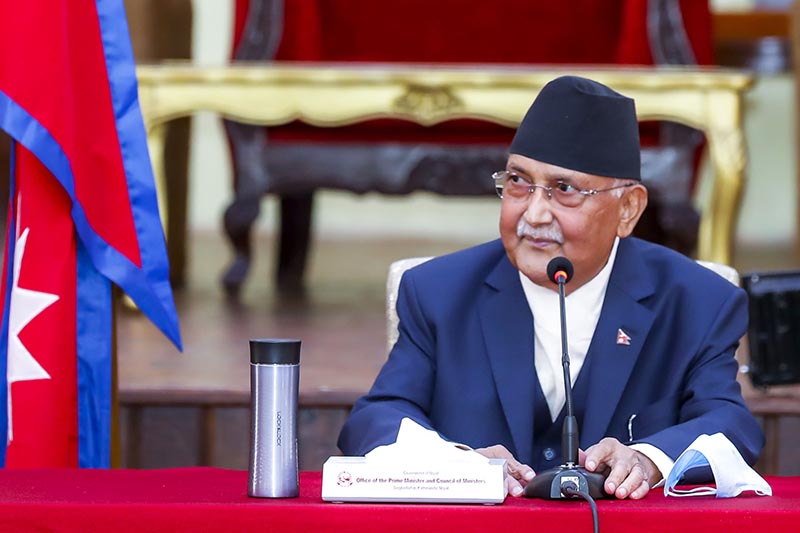Oli avoids NCP secretariat meeting on MCC
Kathmandu, May 23
Prime Minister KP Sharma Oli did not attend a meeting called by the Secretariat of the ruling Nepal Communist Party (NCP) today to discuss the Millennium Challenge Corporation agreement and some budgetary issues.
Party Spokesperson Narayan Kaji Shrestha said that other leaders of the nine-member secretariat discussed issues, but the meeting could not take any decision as the prime minister was absent.
The party Secretariat had called two members of the party’s MCC related task force — Bhim Bahadur Rawal and Pradeep Kumar Gyawali, Minister of Energy, Water Resources and Irrigation Barshaman Pun and Managing Director of Nepal Electricity Authority Kulman Ghising to discuss MCC issues.
Khanal and Rawal had recently submitted a joint letter to PM Oli demanding to know if the government’s pledge to build Lapsiphedi-Ratmate-Hetauda and Lapsiphedi–Ratmate-Damauli-Butwal 400 kV electricity transmission line was a manifestation of its preparation to endorse the MCC agreement with United States of America.
NCP is divided over MCC issues with the prime minister favouring ratification of the agreement and some party leaders favouring amendment to the agreement before parliamentary ratification.
The task force formed under senior leader of the party Jhalanath Khanal had submitted a report saying the MCC agreement was against national interest and it should not be ratified by the Parliament in its current form.
The PM has said there is nothing in the agreement that warrants further discussion. Under the MCC agreement, the US will provide a grant of $ 500 million for various projects. In July last year, the government registered the MCC agreement in the Parliament Secretariat for ratification.
The $500-million grant is part of the $630-million ‘compact programme’ designed by the MCC, an independent foreign aid agency of the US government, for Nepal.
The money will be used to build energy and transport network in Nepal, paving the way for the country to attract more domestic and foreign investment, foster economic growth and reduce poverty.
A version of this article appears in e-paper on May 24, 2020, of The Himalayan Times.






